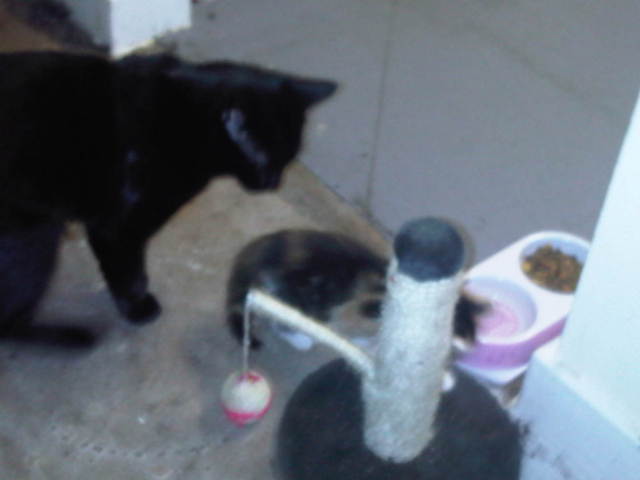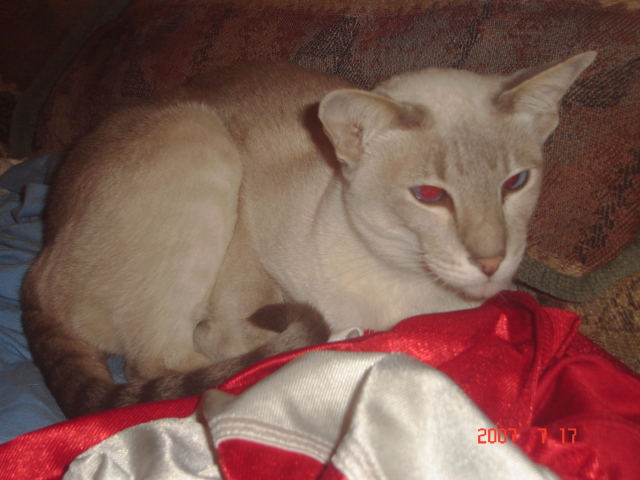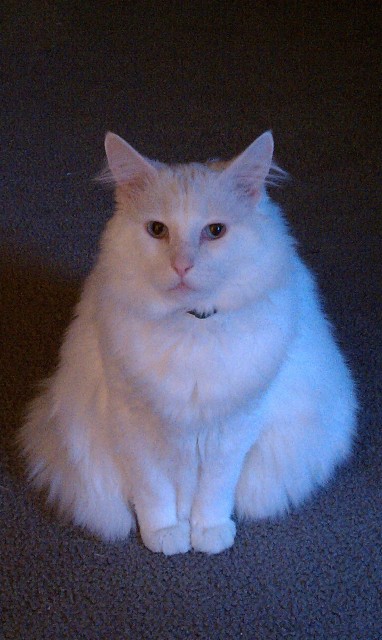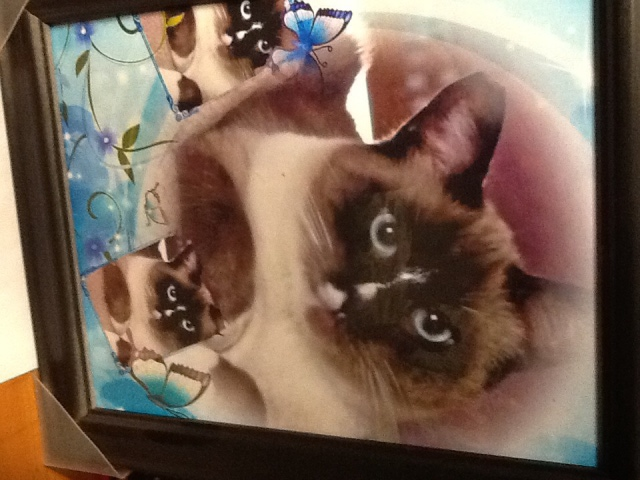QuestionHey Jessica, it's jeff again. Got another question and would like your advice on this. I have a 2 year old male solid black cat named Monty. About a year and a half ago he started have some serious resipatory problems. He started having this thick greenish mucus discharge from his nose. I took him to the vet where he was tested for fiv/ felv which came back negative. The vet did a culture and it came back basically as strepthroat. We put him on antibiotics which had no affect in making him any better. Actually that's not entirely true, it did clear the mucus up, but it was minimal.
So, we've tried several antibiotics and none have really helpEd. His condition hasn't really got any worse, but he is still full of the greenish mucus.
I decided to get a second opinion, I took him to another vet around two weeks ago. Again he has tested negative for fiv/felv. It's been over a year since we last tested him for that. The vet said he did test positive for the coronavirus. The vet seems to think he may have the FIP virus.
As with any information I get, I headed straight to my pc to research it.
I know he is a vet with years of experience, but after my research and the 30+ articles I've read about FIP, I tend to disagree with his diagnosis.
The reason I do is Monty only suffers from one of the possible symptoms associated with this illness which is the heavy congestion. Plus every article I've read says once a cat show visible symptoms of FIP they generally only live a few weeks to a couple of months. He's had this problem for almost 2 years. Never gets any better, but doesn't show any signs of getting any worse. He has a healthy appetite, he is very playful, no vomiting, no running stool, and he doesn't seem to have the swollen potbelly of fluid generally seen in cats with FIP.
Do you have any suggestions?
He's also been on another regiment of antibiotics, again with no change.
AnswerHi Jeff. I'm all too familiar with FIP. Because I specialize in special needs cases, I have battled with the disease in many cats and kittens for almost 15 years, and lost my most recent victim to it just last week. Never have I noted nasal discharge to be a main symptom of the disease. To be frank, to make a diagnosis of FIP based on a history of nasal discharge and a positive corona virus test...let's just say that jumping the gun is a vast understatement. Like you, I disagree with that diagnosis. More than 70% of cats will test positive for corona virus exposure at any given point. Considering that approximately only 2% of cats, depending on which statistics you believe, develop FIP, we know that a positive corona virus test is rarely an indicator of FIP.
What I strongly believe is probably afflicting your kitty is chronic feline herpes. This is the most common upper respiratory infection in cats. Nearly all cats - over 90% - contract this virus, usually as kittens. There is a vaccine against it, which most cats receive as kittens along with their distemper vaccine (a combination of feline distemper, calici and herpes). It does not prevent infection, but helps to reduce the severity of the infection when the cat DOES become infected. Cats who become infected before vaccination are more likely to suffer from the virus severely and chronically, and certain breeds are more prone to severe symptoms. The main symptom of feline herpes is thick, profuse nasal discharge, green or yellow in color. Some sufferers also have a thick eye discharge and swollen, red eyelids.
Herpes sufferers see little or no improvement on antibiotics because the majority of their symptoms are caused by the virus (sometimes secondary bacterial sinusitis or eye infections are a problem, which antibiotics can help with). However, most of them undergo a miraculous recovery on lysine. I think I may have mentioned this to you briefly in a previous answer. Just in case I didn't, here's the rundown. Lysine is an amino acid which binds arginine, a different amino acid, which herpes needs in order to replicate. Without the arginine, the number of herpes virus in the body dwindles, and so do the symptoms your kitty is experiencing. Soon, your cat's immune system has the flare up under control. You can find lysine products formulated just for cats, including Viralys and Enisyl-F treats, pastes, gels or powders. Or, you can give them lysine tablets for humans from your local pharmacy. The effective dose for an adult cat is 500mg a day, preferable split into two doses. Typically, human tablets are 1000mg, so the cat dose is 1/4 tablet twice daily. Since the tablets are so large, it's best to grind the quarters up and mix them into canned food. You should see improvement on the lysine within about 7 days. Keep the cat on the supplement for 2 weeks after symptoms clear up. Some tough cases should stay on lysine permanently to keep flare ups at bay.
If you see no improvement, I think you may need to consider the possibility that Monty could have sinus polyps or something causing sinus infections that won't resolve. This would likely require an exploratory procedure to diagnose. You should discuss further with your vet. They may refer you to a specialist.
I hope the lysine helps! Best wishes!
Jessica

 Cat keeps biting neck of new kitten
Question
my babys
Hiya I have adopted a new kitten (fem
Cat keeps biting neck of new kitten
Question
my babys
Hiya I have adopted a new kitten (fem
 my pregnant cat has given birth to one dead kitten
Question
l
my cat has been nesting for last 2 days, whe
my pregnant cat has given birth to one dead kitten
Question
l
my cat has been nesting for last 2 days, whe
 Siamese tracks feces around the house
Question
Dirty Foot
I recently adopted a wonderf
Siamese tracks feces around the house
Question
Dirty Foot
I recently adopted a wonderf
 can you identify the breed of my cat?
Question
charlie
Ive been guessing Norwegian Forest Cat
can you identify the breed of my cat?
Question
charlie
Ive been guessing Norwegian Forest Cat
 Ferel cat biting
QuestionQUESTION: I took in a ferel cat hes been here a
Ferel cat biting
QuestionQUESTION: I took in a ferel cat hes been here a